Noah Price's Edinburgh Fringe diary
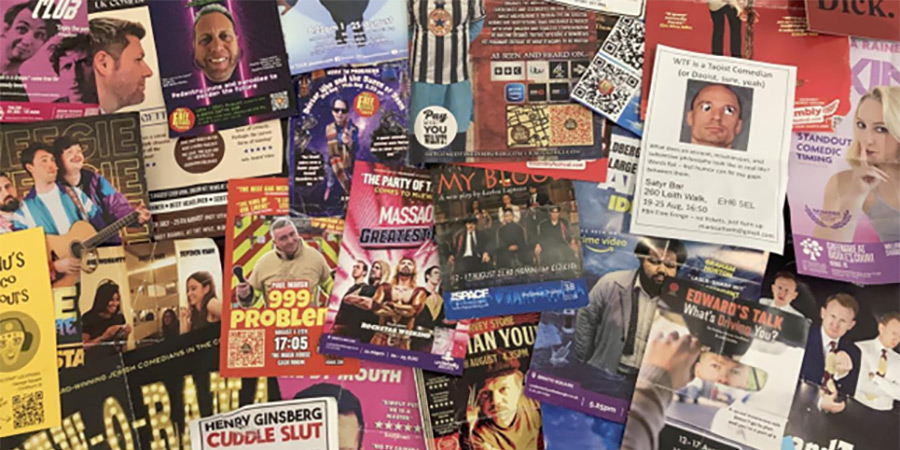
"Christ! I'll have to sell my kidneys," I thought when I first saw how much a hotel room was going to cost in Edinburgh.
Absolutely ridiculous.
I tried to not let this put me off visiting the Fringe festival, however.
I was determined to get there and be there by any means necessary, so, I turned my hopes towards the potentiality of staying in a hostel, but I couldn't believe it: "£300 a night - you must be joking!"
My prospects were looking dim, but, then, after doing some more research, I found my one and only viable option... a tent on a camp site.
Camping... everyone says it's fun, so, it must be true, right?
Well, I took the plunge and I am here now.
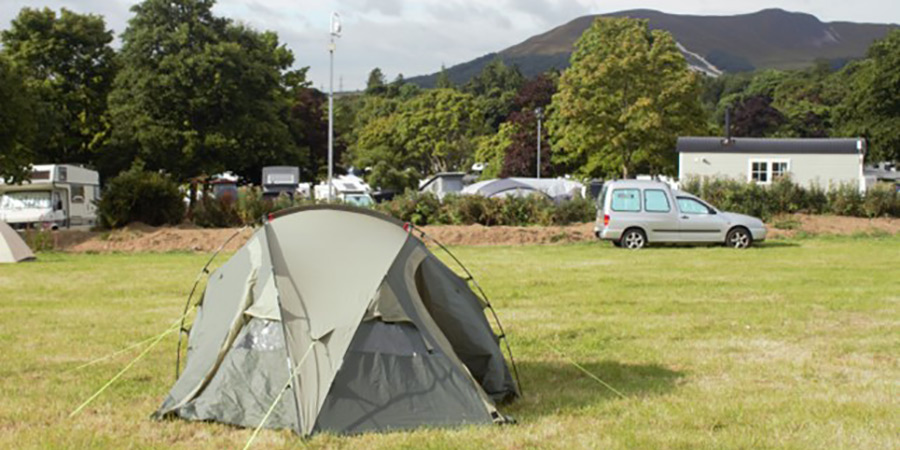
I have managed to set up my tent without too much difficulty.
Everything seems to be going alright so far.
The main thing is that I can finally say, after a 12 hour-long bus journey, that I am in Scotland, Edinburgh, at the Mortonhall campsite during the Fringe.
And I'm bloody knackered.
For some reason, travelling on a bus for a long time, even as a passenger, takes it out of you.
I think it's because the bus seats are never quite comfortable enough.
Being here in the rural outskirts of the city, I feel I can relax though.
There are plenty of facilities at Mortonhall, which reassure me that I am not just stuck in the middle of a field with little to nothing; public toilets, showers, a shop, a pub, even a games room.
One of my favourite features of this place is the two very cute Highland cows, Ed and Dave.
They graze in a field next to the entrance of the campsite, and are regarded by the owners as being pets rather than livestock.
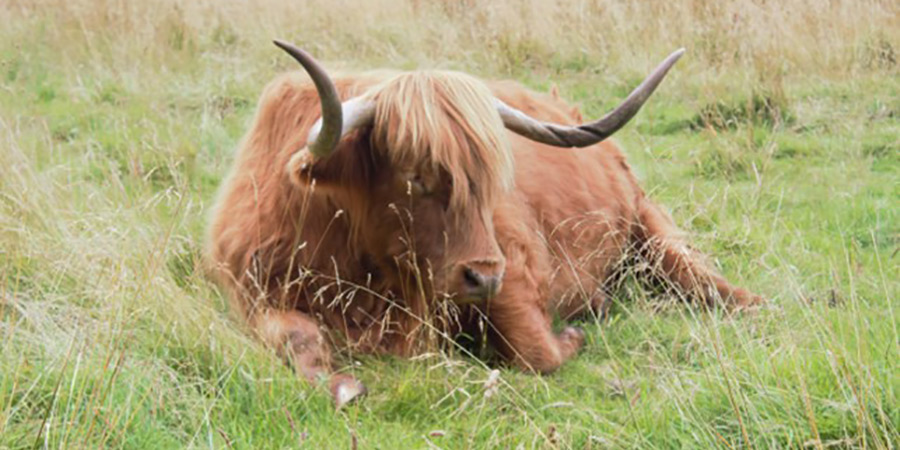
The Mortonhall campsite is situated just four miles outside of the city centre, and it has been providing its service to festival-goers for over 40 years.
It is the "authentic" Edinburgh Fringe camping site, so it says on their website.
During August, thousands of people, tourists, performers and comedians come to stay here for the festival.
I am following in the footsteps of comedian James Acaster, no less.
In a 2013 XFM podcast episode of Classic Scrapes, presented by his fellow comedian Josh Widdicombe, James talked about his first time going to Edinburgh to perform at the Fringe, back in 2008.
Funnily enough, he went along a similar trajectory to me: he had no other option but to borrow a tent off his mate and take the 12 hour-long bus journey from the East Midlands.
I hope my first night is not as disastrous as the one he recalled on the podcast. Almost upon arrival, his tent was flooded, all his clothes and bedding were soaked through to such an extent he had to buy a second towel just so he had something dry to sleep on.
The novelty of camping life soon wore off for him, I wonder whether it will wear off for me.
Unlike James, however, I am at the Fringe in the comparatively more comfortable capacity of being simply, but not merely, a wide-eyed spectator.
A Comedy Tapas
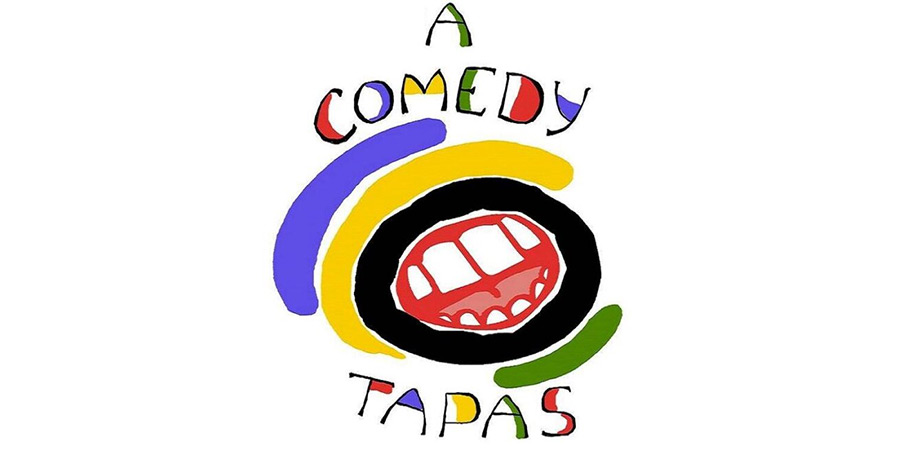
Without meaning to sound hyperbolic, walking through the streets of Edinburgh at the height of the Fringe festival resembles something roughly approximating to a war zone.
From every angle, you are almost constantly bombarded by a printed-out flyer being thrusted in your face by someone somewhere promoting their show.
It is a relentless battle for your attention, and understandably so.
Every single performer at the Fringe has put an immeasurable amount of blood, sweat, tears, sleepless nights and, not to mention, money into making their show the absolute best it can be, and they do not want all that effort to be for nothing.
Sometimes, however, a flyer is not enough to pique your interest; while absent-mindedly shuffling your way through the sea of crowds that flood the city centre during this time of the year, you may take a flyer that is handed out to you - just to be polite - fold it up, shove it in your back pocket and then forget about it.
(On a side note: does anybody have any idea what we can do with all the flyers we collect? I've got piles of them now. It seems a shame to just throw them in the bin. I assume they are recyclable? I suppose we could trade them like Pokemon cards with other festival-goers if we have too many. We can at least keep them as souvenirs.)
Even an explanation of the basic concept behind the show may not be enough to convince you to see it.
If only there was some way of getting a little preview of a show beforehand to truly gauge whether we should seriously invest our interest in it or not.
Luckily, for those who enjoy their stand-up comedy, there is an answer to this - A Comedy Tapas.
As its name suggests, the show presents an array of different comedians who are given the chance to show a little taster of their stand-up acts in the hope that members of the audience will want to see their respective shows in full.
Set in the lounge area of the Southsider pub, with little more than 10 seats in the room, you get the chance to get up-close and personal with the performers.
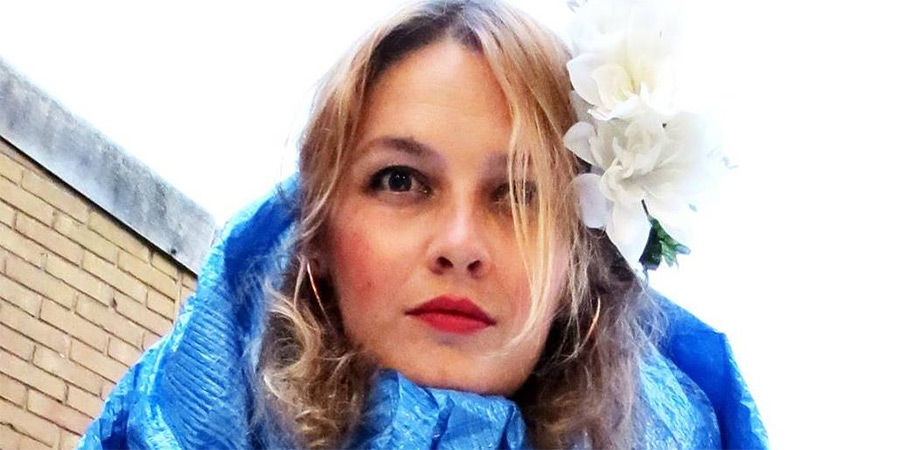
The Manchurian comedian, writer and performance artist Lydia Hirst is the host of the show.
Lydia told me: "The show was originally set up by Chris O'Neill [the comedian and Broadway actor, best known for playing the lead role in the award-winning Book Of Mormon] about four years ago. I have been doing these shows for the last couple of years. It's my bread and butter.
"I'm a working class comedian, so, I do quite dark and edgy stuff, and this is how I can afford to eat while I'm working on the Fringe."
"I like doing the show," she said, "because if you don't have TV credits or a celebrity status or large ratings you can get seen and build up a profile from here.
"You can put flyers in people's hands but they don't necessarily come along, but if you give the comedians a platform where they can give a little preview of their show to the audience, they can get a better idea of what they're in for."
"It's a bit chaotic" she admitted, "I never quite know who's going to come along and that's part of the fun. The acts and the audience come in all at once most of the time."
The off-beat gonzo comedian herself had a stand-up show The Lydia Experience at the Hot Toddy Lounge.
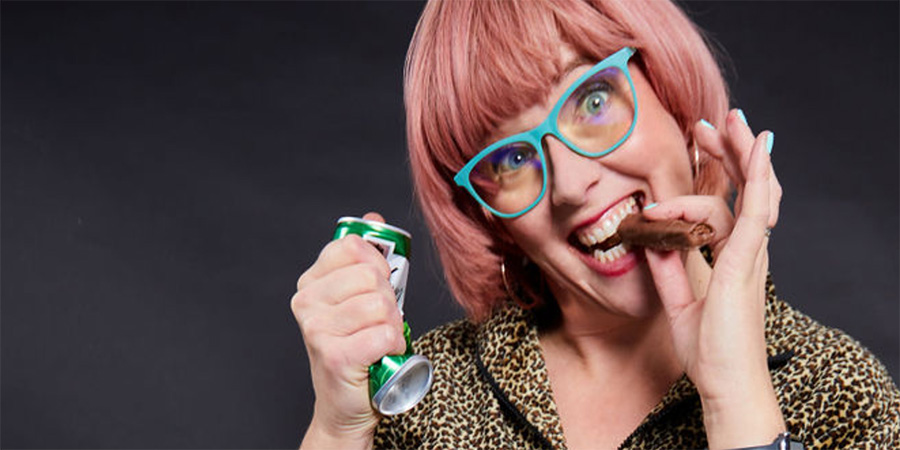
Let's face it... we're a little bit tired of teenyboppers and cock-sure twentysomethings taking all the limelight.
In a time when diversity and inclusion are espoused as being all important, ageism, sadly, still seems to be one of the more casually accepted prejudices in our society.
The 52-year-old Louise Leigh, however, proves that it is often much better if a performer has some real life experience behind them before they take to the stage.
There is a natural, well-adjusted confidence to the late-blooming comic which makes her a delight to watch.
Her second show at the Fringe, Distracted, traverses through subjects ranging from her experience parenting two teenagers, dog walking, going through the menopause to planning her own funeral arrangements with a sharply-honed wit that can only be cultivated through years of hard work and overcoming self-denial.
Where Louise came across as someone familiar and relatable, Katie was aloof in a way that was, frankly, a little unsettling and yet strangely mesmeric.
"There is a Stalin somewhere in every woman," she said in a dead-pan tone while a curious smirk played across her lips, "they are always cropping people out of photos".
Dark, irreverent and acerbic. This is her trademark humour which helped her to reach the semi-final of the Bath New Act of the Year competition in 2023.
At one point, Katie made a reference to something called a "brat summer". This went straight over my head, if I am going to be honest. A few other shows that I have seen since have made the same reference.
It turns out you have to know who Charli XCX is in order to get it. "Is this what they call Zoomer humour?" I asked myself.
"I'm in the middle of writing a screenplay for Gen Z," she said, with an inflection that very nearly sounded close to being sincere."
Then she resumed character, "it's called No Country for They/Them".
"Yes, this is Zoomer humour," I thought.
If the cool and snarky indifference of Generation Z is your vibe, you will enjoy the comedy of Katie Kamola and her comedy partner Anitha Sri (Bath New Act of the Year finalist).
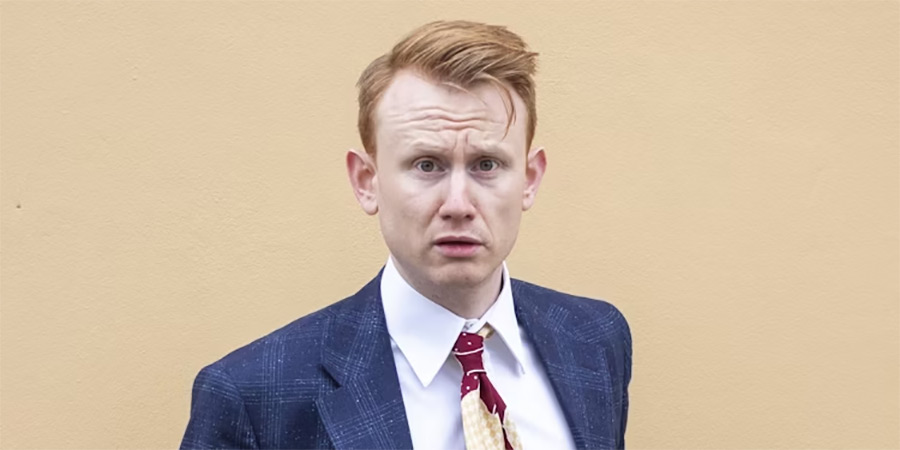
My initial impression of Ben was: "White shirt, white trousers and braces... he looks dapper."
Then, suddenly, a thick quasi American-Italian accent came bursting out of his mouth.
This caused a shockwave to ripple through the room.
He then started throwing big wide open palm gestures across the stage while emphasising nearly every other syllable in every word he said with a strong, overtly-masculine shrug of the shoulders; a classic set of characteristics which will be instantly recognisable to all those who have seen the films of Martin Scorsese.
If Ben didn't have ginger hair, he wouldn't have looked out of place in the cast of Goodfellas. But I, along with the rest of the audience, were totally baffled at first.
His act was such a jarring shift from the rest of the performers that it took us a few seconds to process what exactly was going on.
As Lydia perfectly summed up later on: "There's always at least one act at the Comedy Tapas that makes you think, 'What the fuck?!'"
We all eventually suspended our disbelief and found ourselves totally enraptured by the story his character had to tell.
Ben Goldsmith's gloriously silly one man gangster epic CrimeLandTown was performed at The Mash House throughout the Fringe.
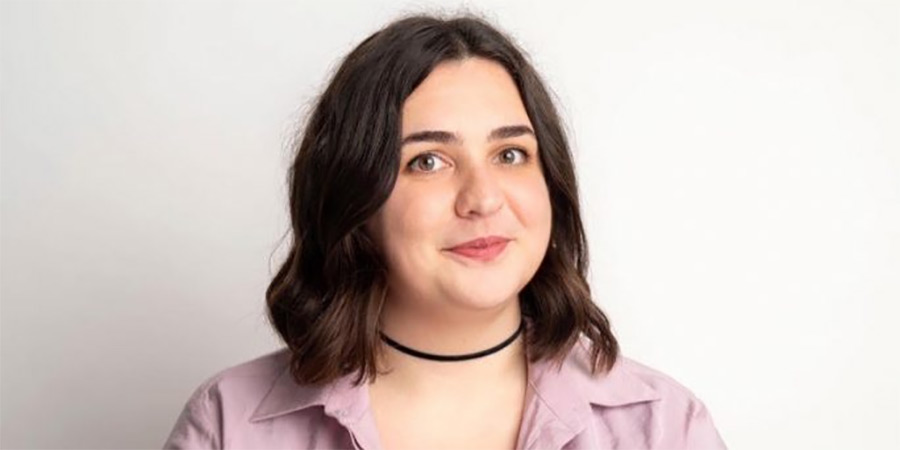
Through the form of fiery-but-fun rants, mainly bemoaning her fruitless and, ultimately, ill-fated search to find a suitable partner, Ege Öztokat's solo show Antidepressed explores the trials and tribulations of being a young Turkish woman in the modern world.
It is the most delightfully unhinged, close-to-complete mental breakdown - featuring a ukulele - you will ever witness.
She can't sing or play the ukulele (and she knows), but she will make you helplessly laugh.
After the show had finished, I tentatively walked up to Ege and asked her, "Are the stories you tell based on real life experiences?"
"Yes," she said, "I did date my stalker and I really did date someone who killed a cat during their childhood."
I was so shocked that I put my hand over my mouth, not knowing whether to laugh or cry.
"The bit I said about him 'smashing pussy' isn't true," she said, "because that joke doesn't work in Turkish in the same way it does in English."
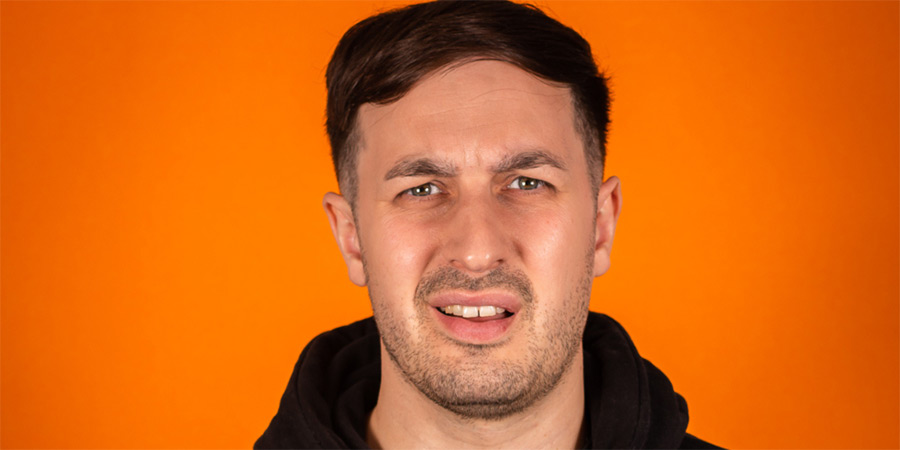
Raised by a Polish mother and a Pakistani father on a Bolton council estate, the award-winning white-Muslim comedian Adam Anwar is something of a living anomaly.
Not only does he embrace his uniquely multi-cultural background, but he takes great relish in using it specifically to provoke right-wing bigots in his latest show UKIP's Nightmare.
Considering the current state of the socio-political climate, he could not have timed this show any better if he had tried.
A rebel with a cause, and definitely one to watch.
Adam intends on taking UKIP's Nightmare to the Leicester Comedy Festival next year.
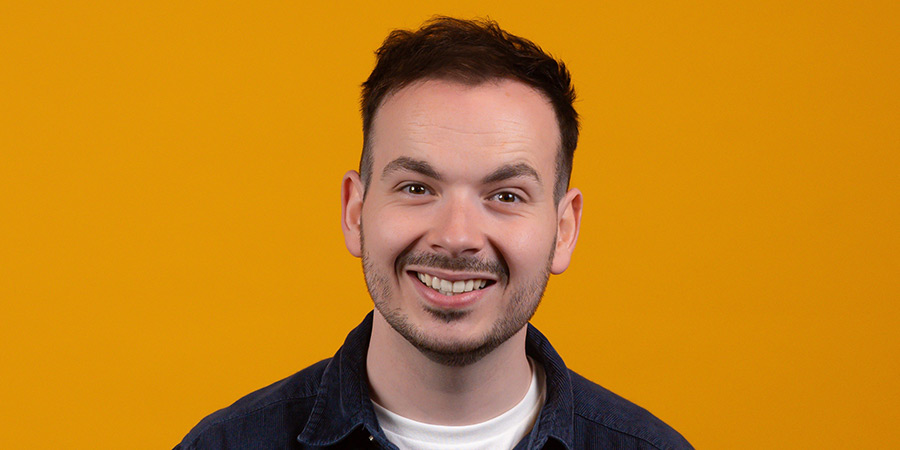
After a set of rather brazen and in-your-face comedians, Jack Kelly was a refreshing appetiser among A Comedy Tapas.
Before he started his set, he gently broke the ice by saying, "No one is working harder at the Fringe than the buttons on my shirt."
If you prefer your comedy to be more on the light-hearted and whimsical side, Jack's sense of humour will be exactly to your taste.
The show which he and his fellow comedian Jimmy Shirley performed at the Fringe, Pool's Gold, was about them looking back at their early years growing up in the North West through wistful and hilarious anecdotes involving scampi, seaside rock and sausage rolls.
I asked Jack why A Comedy Tapas is important to him and other comedians: "It's definitely worth doing, it's a way of marketing your show to people," Jack said.
"Our show is on at half-ten in the morning and this is on at twelve, so, we can dash over here, do a 10 minute-long set, and it's more effective than flyering.
"I came here to do this show the other day and three people from here came to our show the following day."
If you want to support up-and-coming stand-up comedians but are unsure as to who you would like to see, A Comedy Tapas is for you.
It is also a good first show to see to break your "Fringe virginity" if you have never been to the festival before.
I would suspect that this is exactly the kind of event people find themselves boasting about seeing years later when at least one of the acts has become a household name.
Daliso Chaponda - Feed This Black Man Again
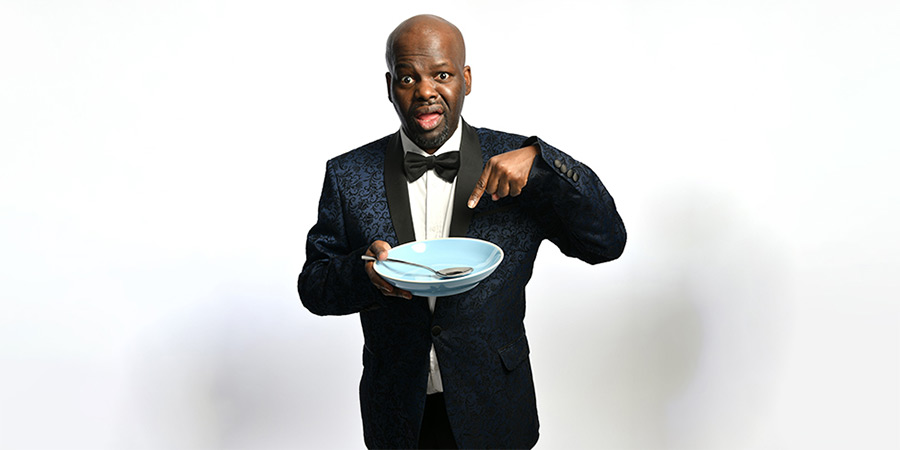
The Nigerian author Chimamanda Ngozi Adichie famously once said, "The problem with stereotypes is not that they aren't true, but they are incomplete."
It is this same notion which directs the central theme of Daliso Chaponda's Feed This Black Man Again, a follow up to his first headlining show which he performed in 2004 at Concordia University, Canada, when he was only 22-years-old.
We all know that sequels can be disappointing in comparison to the original, sometimes in the most hilariously catastrophic way (The Exorcist II, anyone?)
I never saw Daliso's first show, but, from what I gather, he has matured significantly as a performer since and, this time, he continues his mission to debunk the assumptions and stereotypes that are made about ethnic minority groups - from both sides of the political spectrum - with a biting wit and sharp intellect that only a fully-formed comedian can deliver.
The title itself is a tongue-in-cheek reference to the way we here in the West are constantly presented a one-sided narrative of Africa being a wretchedly poor - so-called "third world country" - where fat bluebottle flies are free to land on the skin of impoverished children and happily suck at their tear ducts without interference.
Daliso came from a pretty comfortable middle-class background in the city of Malawi, Africa.
He studied English Literature at Concordia University, Canada, and his father, George Chaponda, has been an MP for the Malawian government since 2004.
Nonetheless, Daliso told us that there had been many occasions where white people had felt the need to tell him how inspiring he is while presuming he has had to take an exceptionally long and arduous road into the industry from absolutely "nothing".
No doubt these people were sincere in their intention - they meant well - but much like the protagonist in Dorothy Parker's 1927 classic New Yorker short story Arrangement in Black and White, their gesture of admiration comes across as, ironically, racist in its clumsy attempt to address racism.
On the flipside, Daliso could not help but comment on the recent anti-immigration protests which have erupted across the UK.
You could almost feel the tension in the air when he made a direct reference to the riots.
To say the news has upset people up and down Britain, not least the people of Edinburgh, would be putting it lightly.
Few people I have met have not been affected by the incident which took place in Southport, Liverpool, and the riots sparking off from it.
Being here in such a multicultural city, I can tell you from just speaking to some of the locals that they have zero tolerance for the racial discrimination that the anti-immigration riots are fuelling.
Two police officers reassured me that Scotland is well-prepared for disruptive protests because of the country's long history with separatism.
In England, we have been caught off-guard, so they told me.
But, anyway, as I said to the police officers, "You'd have to be a right cunt to start a riot in the middle of the Edinburgh Fringe festival."
They agreed.
Daliso, with great tact, dived into the subject and managed to shatter our anxieties into glorious laughter.
"Have you been watching the footage of the demonstrations?" he asked us, to which the room replied with a solemn murmur of acknowledgement.
"It's crazy because they brought their kids along," he said.
"Who brings a kid to a riot? I guess it's the far-right version of take your son to work day."
It is worth noting that Daliso's mission never strays into the pious lecture.
He is far too skilled a comedian to stumble into this particular pitfall.
Daliso may also be able to avoid making such a mistake partly due to the fact that - and he would be the first to admit - he has somewhat mellowed with age.
"I used to be involved in activism," he said, "but I can't do that stuff any more".
This stance of his is not to be mistaken for indifference, however. Daliso just believes that neither anger nor tactics, which could be described as divisive, are necessarily the most helpful answer to such issues.
He is disappointed, a little tired from the fight, exasperated more so than he is out-right angry. He still cares greatly about people. He knows we can do better and are capable of doing better, but not through force.
You get the impression that this is a man who is trying to make a table that everyone can sit around.
Towards the end of the show, Daliso asked us to take part in a Q&A where we were allowed to ask him any question we liked.
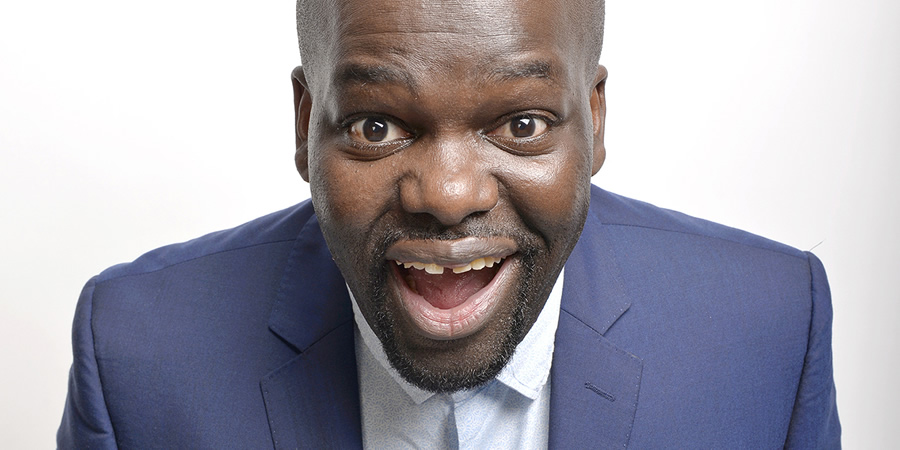
He was inspired to add this segment during the pandemic. "I wanted something which could only be done live in a room full of people," he said.
Clearly, connecting with people is all important to him and this speaks to the generosity and warmth of his character as a comedian.
The questions ranged from the reasonable "What are the best and worst places in Malawi?" to the completely random "What is your favourite carbohydrate?"
He took all the questions in his stride.
As I sat back watching, I realised that this exercise in imparting and gathering information via the means of using the Socratic method, supported my long-held belief that comedians are essentially philosophers - if philosophers had a sense of humour.
Let's face it, neither Schopenhauer or Neitzche can be described as exactly a barrel of laughs, can they?
Daliso, I would assume, is too modest and nowhere near pretentious enough to view himself as a philosopher.
But he did end his show with a joke (I won't tell you exactly what he said, just the vague gist of it, of course - spoilers!) which perfectly illustrated an idea that even Søren Kierkegaard would have appreciated:
It has often been said that the difference between an atheist and a comedian is that the atheist sees life as thoroughly meaningless and absurd.
The comedian may well agree with this outlook, up to a point.
"Ok, yes," the comedian says, "you're right. It is absurd, but let's laugh at it while we can."
In his own perhaps futile-worthy way, Daliso is trying to find some answers among the absurdity.
A true master of his craft, he is a comedian who makes you think as much as he makes you laugh.
Jew-O-Rama
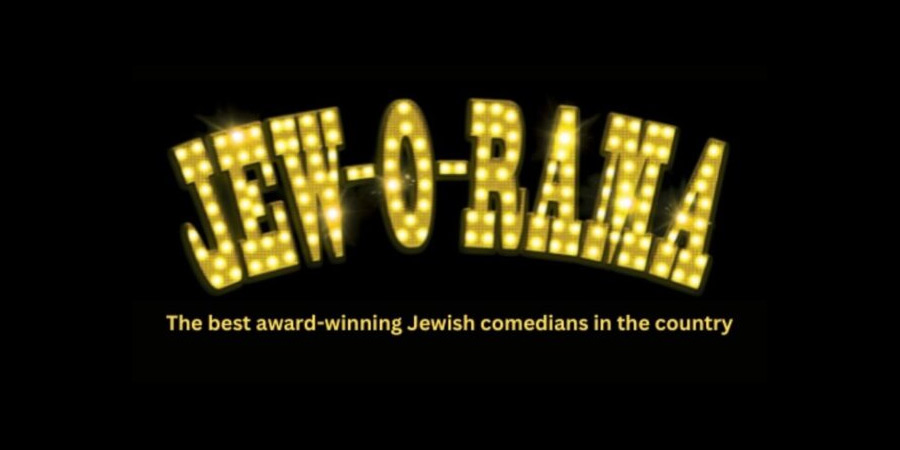
Neurotic, self-deprecating and riddled with persecution-anxiety, comedy does not get any more Jewish than the kind that you will find at the Jew-O-Rama show.
Performing its eighth year at the Fringe, the event is an unashamedly joyous celebration of the very best Jewish and "Jew-ish" comedians that the UK comedy circuit has to offer, at the Whistlebinkies bar.
Just before the show starts and while you are finding your seat in the venue, classic Jewish novelty records are being played through the speaker system such as Frank Gallop's cowboy parody The Ballad of Irving, and Allan Sherman's Won't You Please Come Home Disraeli; a subtle nod to you, as an audience member, to say that you are in for a fun time.
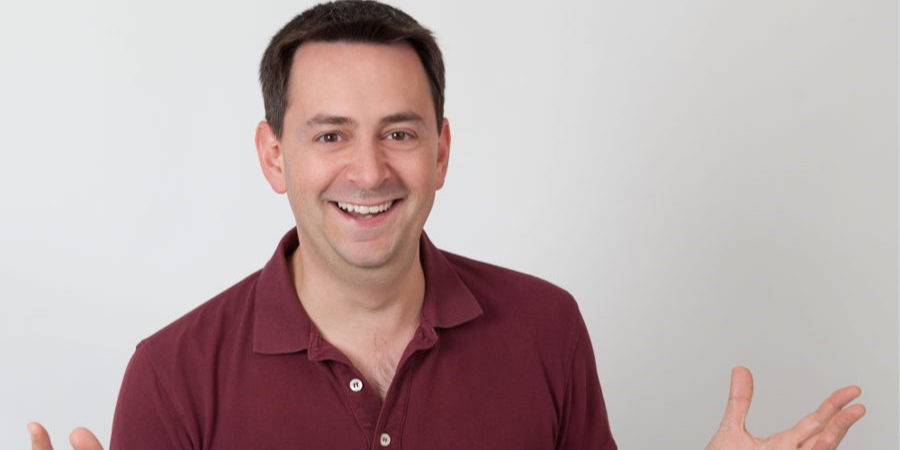
The compilation stand-up show is hosted by the award-winning comedian, writer and actor Philip Simon.
A perfect host, he knows exactly how to set the tone: "We do have some comedians performing with us this afternoon who are not strictly Jewish," he announced, "but I would appreciate it, please, if you do not sit there trying to guess which ones of us are Jewish and which ones of us aren't - historically that has never ended particularly well for us."
The room guffawed with laughter.
"If you are not Jewish, you are, of course, welcome," he said to us.
"We do have a conversion programme, if you're interested? If not, we do ask for your 'tips' at the end of the show anyway," he added with a tongue firmly in cheek.
Philip had his own one-man-show at the Fringe called Shall I Compere Thee In A Funny Way at the Banshee Labyrinth.
Be sure to check out his podcast Jew Talkin' To Me? a chat show which revels in talking about "all things Jewish" at jewtalkintome.com.
Guests on the podcast have included comedian Isy Suttie (Peep Show), the author and TV writer Anthony Horowitz (Alex Rider, Foyle) and actor Mara Wilson (Matilda).
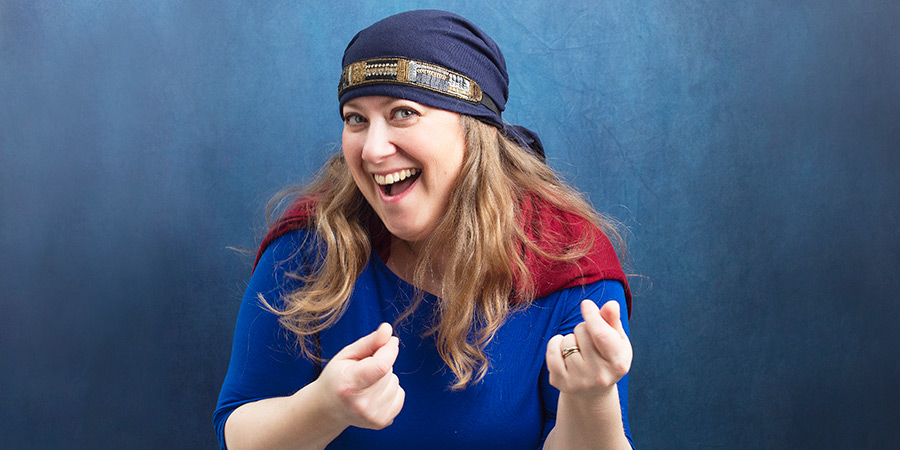
A loud and proud Orthodox-Jewish mother, Rachel Creeger happily ticks all the boxes when it comes to the pushy but well-meaning matriarch of the family.
The award-winning comedian has all the answers to all the problems and quandaries that concern you the most, everything from how to educate and discipline your children to how to make the perfect chicken soup.
Really, she is like most good mothers - if you have been fortunate enough to have one -perhaps the only difference is she is actually willing to admit to the "aggressive maternal love" that she has for her kids.
You will laugh, you may even get a little teary-eyed thinking about your own "mame" and all the personal sacrifices she made for you while you were growing up, and how she has always somehow tolerated you.
Funny, heart-felt but never "schmaltzy".
Rachel had her own show The Ultimate Jewish Mother, which was performed throughout the Fringe at Whistlebinkies.
She also features as joint host with Philip Simon on the podcast Jew Talkin' To Me?.
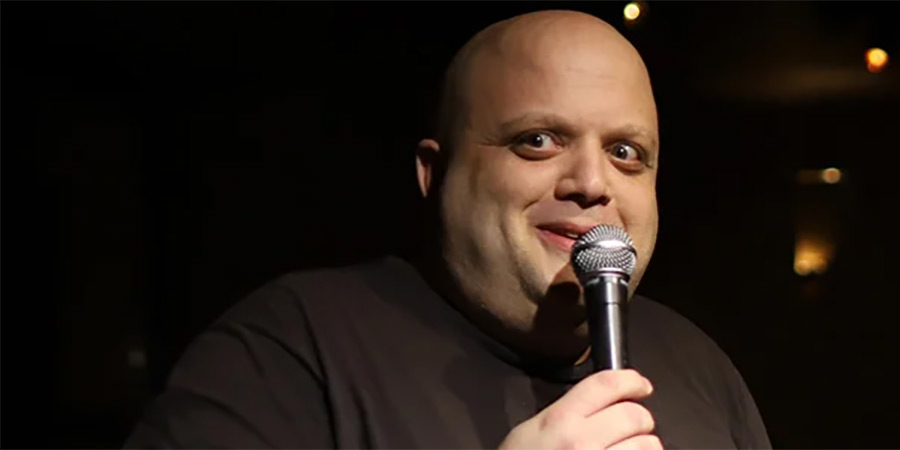
If you want to find a comedian who perfectly defines the meaning of that lovely Yiddish word "nebbish", look no further than Aaron Levene.
"Don't worry" he said to us, as he somewhat timidly took to the stage, "I'm not Uncle Fester."
He told us about his troubles with losing weight, his well-intended but, ultimately, clumsy attempts to impress his wife while on their honeymoon, and even found a funny way of telling us about the medical assistance he received when diagnosed with testicular cancer at the age of 19.
It is impossible not to find yourself completely endeared to him by the end of his set.
Aaron's "hassidic" wit was taken to its fullest extent in his Fringe show ADHD: A Love Story.
Be sure to check out his YouTube channel. Not only is he a fine comedian, but he is also a great comedic actor who will have you laughing yourself silly.
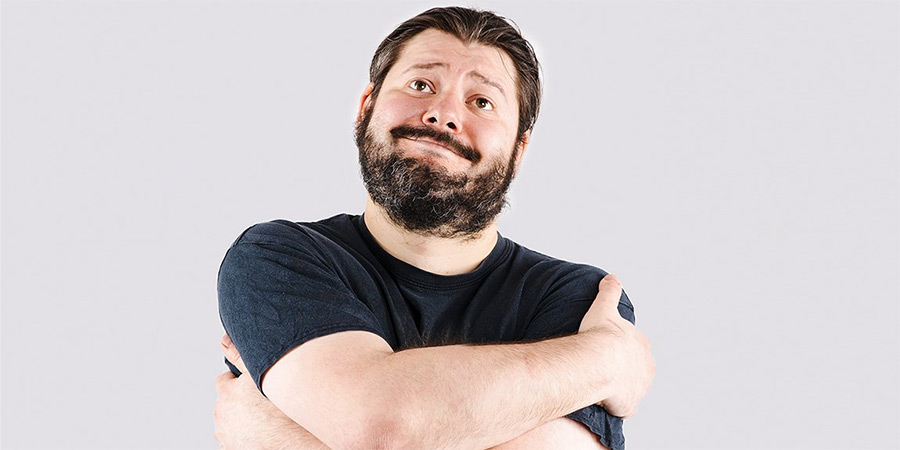
Although seemingly brusque on the surface, there is an emotional vulnerability to Henry Ginsberg's comedy which makes him helplessly loveable.
During his turn at Jew-O-Rama, he told us about a moment he experienced while at university where a fellow student felt the need to give him a "symbolic" chocolate-chip muffin, bought from a rather dubiously-placed, to put it lightly, gift shop.
I will not spoil it for you, but if I had the authority to award anyone with the best joke of the Fringe, I would happily give it to him.
Henry performed a solo show at the Fringe called Cuddle Slut via Laughing Horse, one of the biggest comedy producers at the festival.
At quarter to midnight, throughout the Fringe, Henry also hosted a compilation stand-up show called The Late Night Comedy Death Camp at Bar 50 where the comedians were given licence to inflict their darkest material upon the audience.
I did go along to one of them, and the only way I can describe it is: it was like watching a jet plane slowly nose-diving towards the ground, but instead of pulling back on the throttle, each comedian took it in turns to push it down further and further until it was flopping about on the stage like a dead flamingo.
A variety of comics, all with a distinct style of their own, albeit with some reoccurring themes. Even if you are not Jewish or you can only say that you are "Jew-ish," you will find something to enjoy at Jew-O-Rama.
I was laughing so much, it was ugly - snot bubbles and all. An absolute must-see while you are at the Fringe.
Holly Stars - Justice For Holly
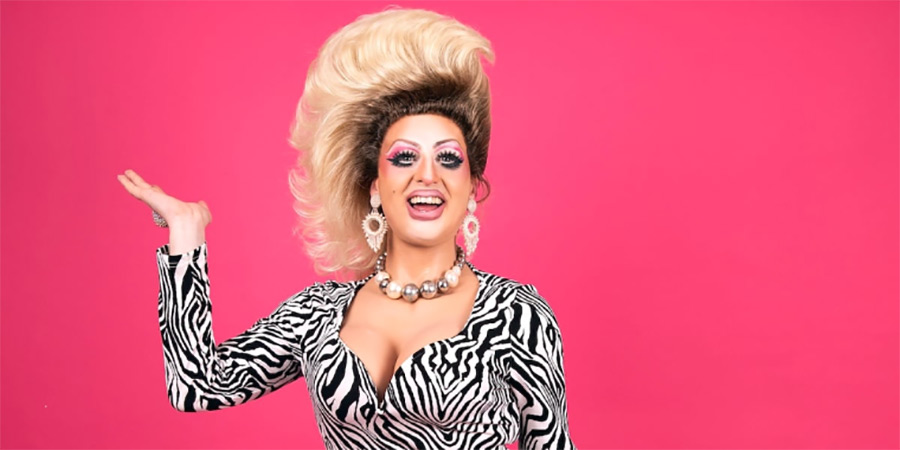
Like a bolt of lightning, I saw Holly before I saw her show.
She was outside the venue, Assembly at George Square Studios, having photos taken of herself with curious passers-by. And no wonder, Holly was impossible to miss.
Dressed in a retro 80s jumpsuit, and with shockingly-blonde hair bouffanted to the max, while sporting a pair of black thick-rimmed glasses nearly the size of two car windows, she looked like an LSD-inspired version of Deirdre Barlow from Coronation Street.
This experience of mine was only to get more strange from here on in. The performance room itself was appropriately surreal. It is not called the Assembly's Underground for no reason.
Before getting to our seats, we had to be guided through a long and windowless corridor, covered inch-by-inch with promotional posters.
I felt as if I was being led down a rabbit hole into some alternate dimension.
When I finally saw the room, I could not believe my eyes.
It was such a bizarre contrast to the rest of the building's decor, it was close to being quease-inducing: a black and white chequered floor, which seemed to stretch out into the infinite, leading to a raised stage with a tacky sparkling-gold curtain backdrop.
Imagine entering the red room in Twin Peaks to the sound of Aqua's 1997 hit Barbie World, but if it was set in the gentlemen's club of Peter Kay's Phoenix Nights.
I sat down as soon as I possibly could in order to anchor myself.
In hindsight, it was the perfect venue for Holly to spin the story of her outlandish plight towards justice.
Just before she took to the stage, she went up to each and every one of us in the audience offering us the choice of either a chocolate bourbon or custard cream biscuit.
A nice gesture, it would have appeared to be, but one of the audience members sitting in front of me questioned it, calling it "ominous".
An ominous biscuit?
All I will say is that they were not entirely wrong, but all it led to was a perfectly harmless joke.
The main question on all of our minds was: why is Holly seeking for justice in the first place?
The answer to this was the punchline of the show rather than the crux of the matter.
Weaved around it was a colourful tale of shoplifting in Superdrug, petty catfighting, bitterness, betrayal, cocaine, and even an insight into how rare exercise VHS tapes are being much-sought after by a very very niche market in our digital age, all based in a grim but fictional (I hope) suburb of the North West. So desolate and grey that, unlike Edinburgh, it only has one bus which only goes round one route.
"It starts at the primary school," Holly told us, "goes to the McDonalds and then ends at the prison. It represents the sad life cycle of the people."
If you have ever asked yourself: "What would happen if Paul O'Grady's Lilly Savage and the guys behind The League Of Gentlemen got together to write and direct an episode of EastEnders?" then Justice For Holly will provide an answer, except there are no cameras, no actors, no props; just the story-telling prowess of Holly Stars.
SJ Wyatt - Doctor Who and the Queen of Doom
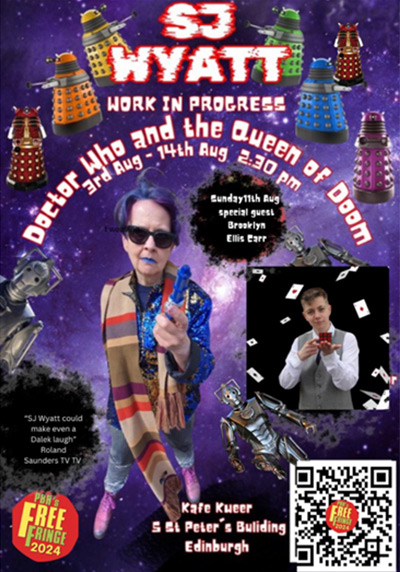
Having been a Doctor Who fan for most of my life, how could I possibly resist going to see Sally 'SJ' Wyatt's debut one-person-show Doctor Who and the Queen of Doom?
Before you could say, "Raxacoricofallapatorius," I was there at the venue, the Kafe Kweer, ready and waiting.
I knew the show was going to be on the quirky side (is there a TV programme more mad and outlandish than Doctor Who?) and I knew it was going to be funny, but I did not expect it to move me in the way that it did.
You would be easily forgiven for assuming that the use of the Doctor Who concept is simply a gimmick to appeal to fans of the programme, but it goes way, way deeper than this (it does help if you are a fan before going to see it, however).
Sally uses the iconography of the show to explain themselves and their life story; the tense relationship they had with their "Dalek" mother, how they try on a daily basis to reverse the bipolarity of their mental health issues, the encounters they have had with various "Cybermen" over the years, and how they came to form their staunchly left-wing views.
It's safe to say that Sally is not a supporter of Tommy Robin-son-taran.
The character of the Doctor, Sally explained, became a hero for them during their childhood, a beacon of hope, one that stretched far beyond the confines of the television screen.
They spoke about how they were ruthlessly bullied both at home and at school for having difficulties when it came to reading and writing.
No one understood or empathised with the fact that they had, what we now know to be, a learning disability called dyslexia, but, in a way, the Doctor did.
One day Sally came across a Target novelisation of the 1967 Doctor Who story The Abominable Snowmen written by Terrance Dicks.
It was the author's masterful use of plain prose which helped them to improve their reading and writing skills.
The novel ultimately inspired them today to write their very own spoof Doctor Who script which features as part of a participatory segment of their show.
We were (all six of us in the audience, packed in a backroom downstairs in Kafe Kweer) given a copy of the script and each assigned a role to play.
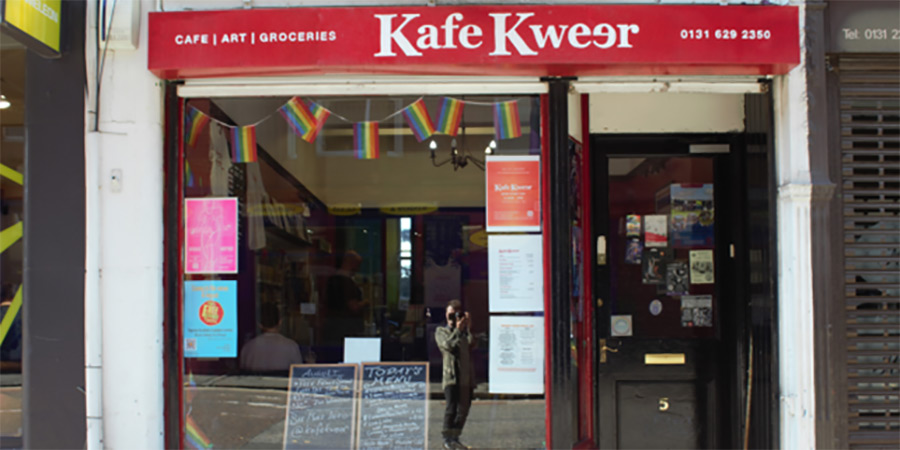
There was an ever-so-slightly clumsy charm to the way the performance was conducted, which is not a fault - far from it - the relaxed nature of the show made the experience all the more enjoyable.
I felt as if I was watching and taking part in an informal but fun theatre play taking place in the comfort of my sitting room with just me and a few close friends of mine.
I played the part of the companion, and, I am not going to lie, I particularly enjoyed saying lines like this:
DOCTOR: You're a Doomnite! A creature from the planet MAGA that feeds off the despair of species and sucks up any joy in their lives.
COMPANION: Basically the Tory party.
Doctor Who and the Queen of Doom was as delightfully strange as I expected it to be and even more wonderful than I could have imagined.
After the show had finished, Sally got me thinking about the Fringe as a whole.
We are all drawn to the big names, the big posters and the big venues, of course we are, but I believe the festival is about much more than mere commercial viability.
You can go and see the TV stars in London. The Edinburgh Fringe offers something different. In essence, it is about the democratisation of art.
Anybody, regardless of their status or background, can come up with an idea and make it come alive through their own ingenuity and sheer determination.
It is the little shows, the hidden gems, like Doctor Who and the Queen of Doom which, in my opinion, capture the true spirit of the festival.
To quote the Doctor themself (this must be the correct pronoun to address a being who has more than 12 incarnations?): "Fantastic!"
Conclusion
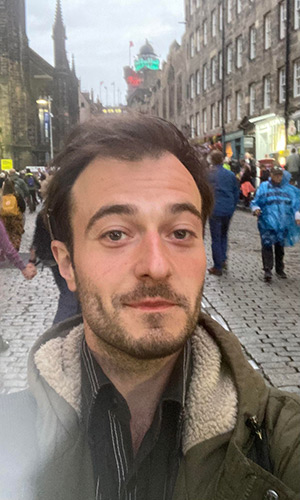
There were many thousands of shows at the Edinburgh Fringe this year, and over 2,000 of them were comedies - by far the most popular genre at the festival - and more than 300 shows were completely free to see.
I wish I could have stayed longer, I wish I could have seen them all, but, of course, that would have been impossible.
One objective I had, while I was there, was to find the weirdest show with the latest time slot.
On the day before I had to go back home, I found the (the in italics) show I was looking for, purely by chance, but sadly I had no other choice but to miss it.
"Have you heard of the cheeseman?" a barman asked me while I was buying a pint.
"The cheeseman?" I asked sceptically.
"Yeah, it's a show that's on at two o'clock in the morning at The Banshee Labyrinth, and all it is is a comedian telling jokes while eating a piece of cheese for an hour."
"It doesn't get more Fringe than this," I thought to myself.
"Is he performing tonight?" I asked, excitedly.
"It's his day off today, I'm afraid," the barman replied.
My heart sunk.
"I don't think I'd come across him in any of the brochures," I said, while only just managing to conceal my dismay and frustration.
"No, you wouldn't have done," the barman explained, "he does all his promotion through word-of-mouth".
Edam it! (hee-hee ho-ho!)
Next time, I will find the mysterious cheeseman.
Next time, I won't be in a tent, hopefully.
I will go better prepared.
Whoever said camping was fun is an out-right liar and they know it. Every morning, I woke up screaming in absolute agony; back ache, leg ache, neck ache, cramp pulling at my every muscle, all at once at the same time and as soon as I opened my eyes. God awful. At least I never had a hangover to go along with it.
Apart from that I had a wonderful time.
This was all the more emphasised when, on my way back, I could not help but notice how the landscape around me gradually grew more bleak and dreary the closer I got to my home town.
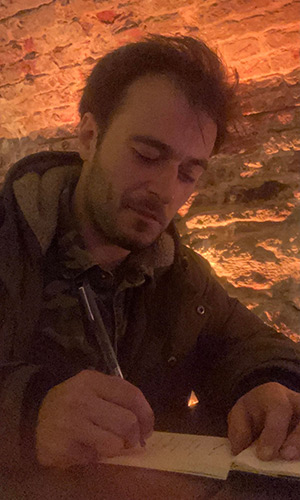
My experience of Scotland and the Edinburgh Fringe felt like some distant dream that had evaporated over the course of 12 hours by the time I arrived.
For some perverse reason, I was inspired to look up the least creative place in the UK.
According to a survey that was carried out by Adobe Express earlier this year, the least creative place in the country is... where I live... Northampton.
Not surprising to me in the least. I had always suspected it, but now it would appear to be an established fact.
And then, I come home to even more depressing news.
Creative Scotland, the national agency for the arts, have, as of the 30th August, closed their Open Fund scheme for individuals working in the creative industries until further notice.
According to the Creative Scotland website, this decision has been made "due to the Scottish Government being unable to confirm release of £6.6m in Grant-in-Aid budget in the current financial year, 2024-25."
The SNP leader and First Minister of Scotland John Swinney said on STV recently that the government is going through a difficult fiscal period where at least £250m cuts will have to be made across all sectors.
The Open Fund is just one of many wounded victims of the austerity measures currently being rolled out by Westminster.
Critics have said that its closure will affect working class artists in particular, a demographic that already struggles enough to enter the creative industries.
How it will affect the future of the Fringe is uncertain, but it is yet another troubling sign of a downward funding trend which threatens the public's right to access culture across the UK.
I hope, and I am sure millions of other people also hope, that it does not lead to a negative impact on the Fringe.
If the festival proves anything, it is that we need the arts, it is not some frivolous luxury item, as it is sometimes described as, that we can live without - exist without, maybe, but live without?
Help British comedy by becoming a BCG Supporter. Donate and join us in preserving, amplifying and investing in comedy of all forms, from the grass roots up. Advertising doesn't cover our costs, so every single donation matters and is put to good use. Thank you.
Love comedy? Find out more
